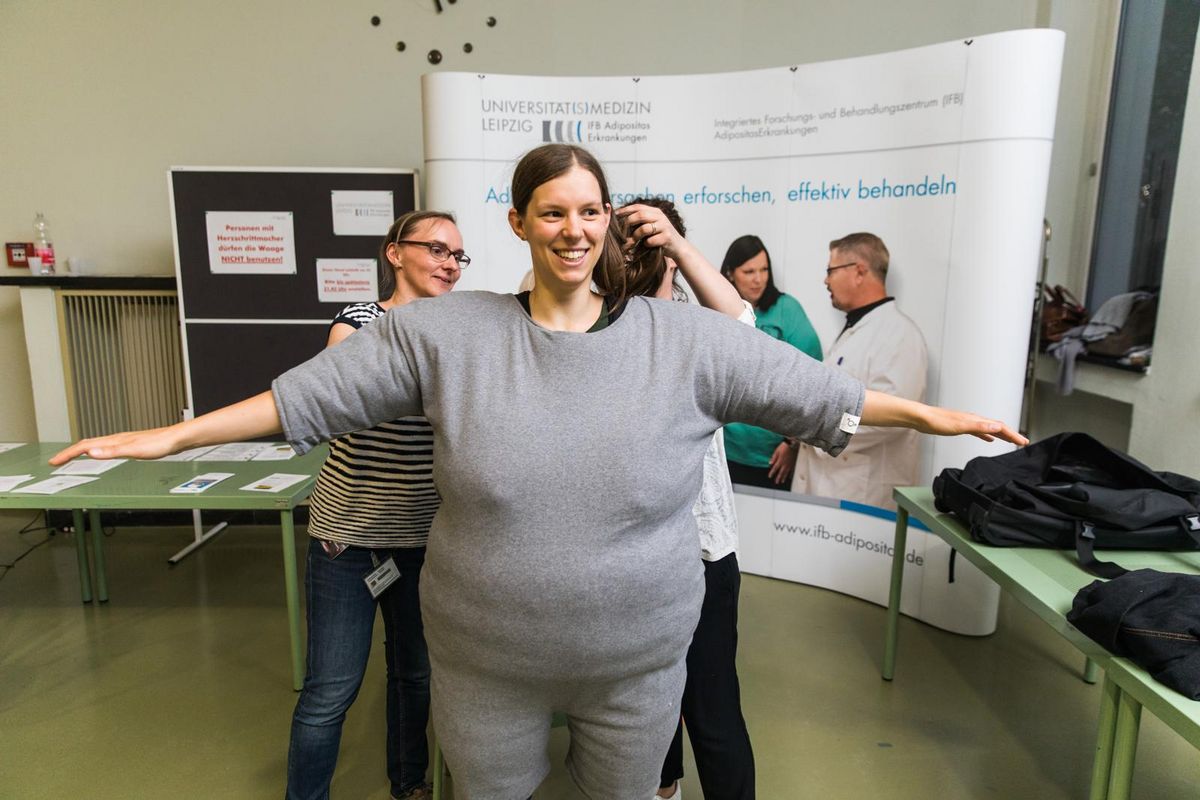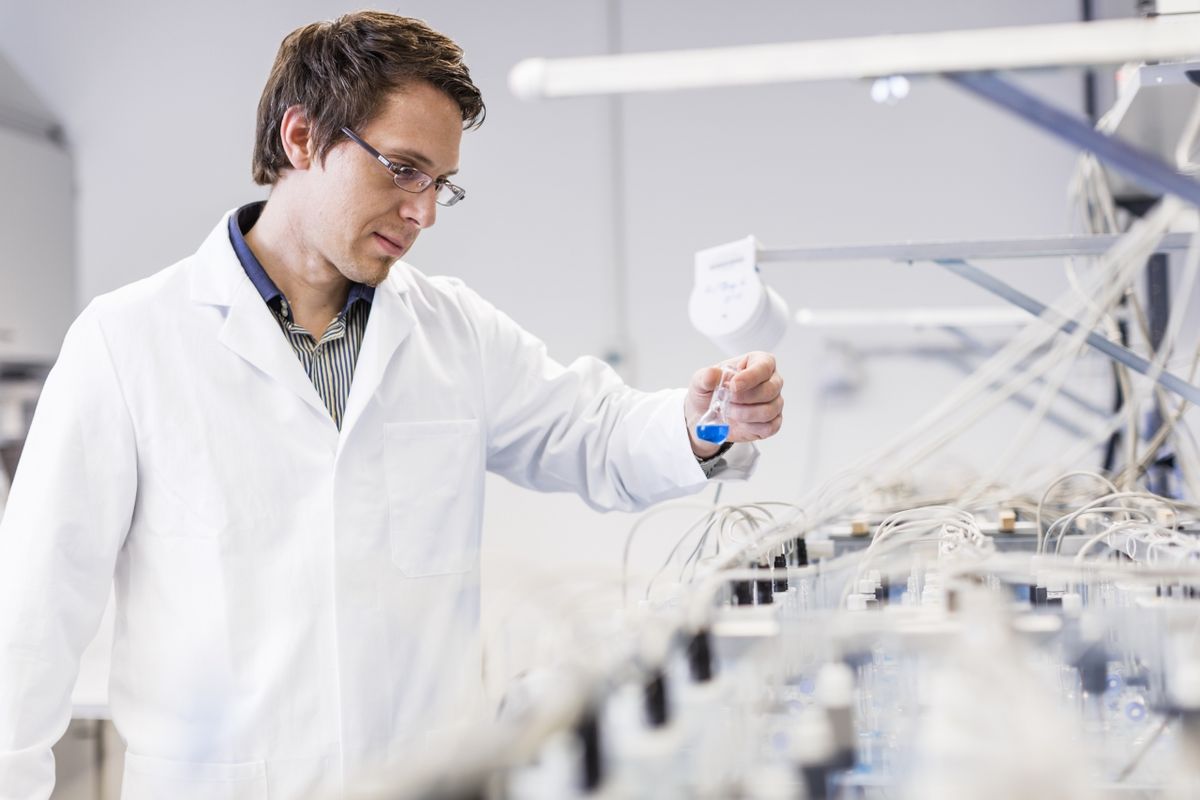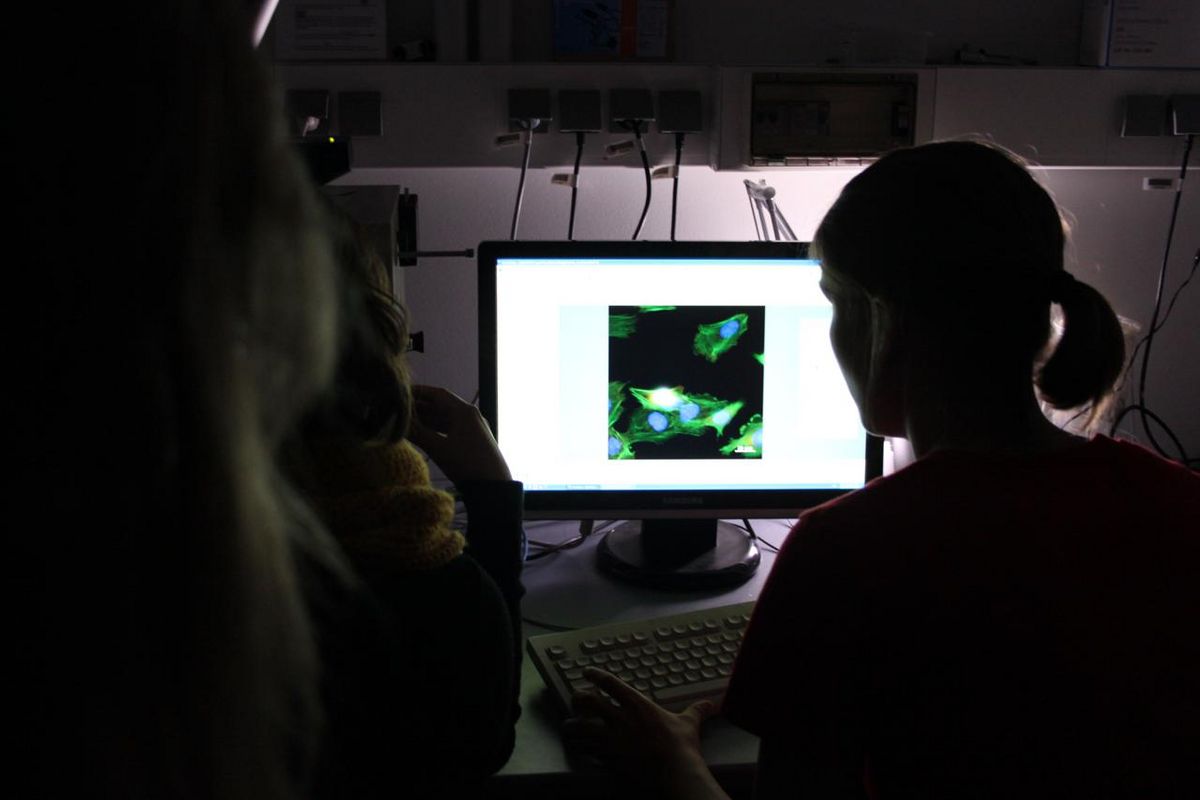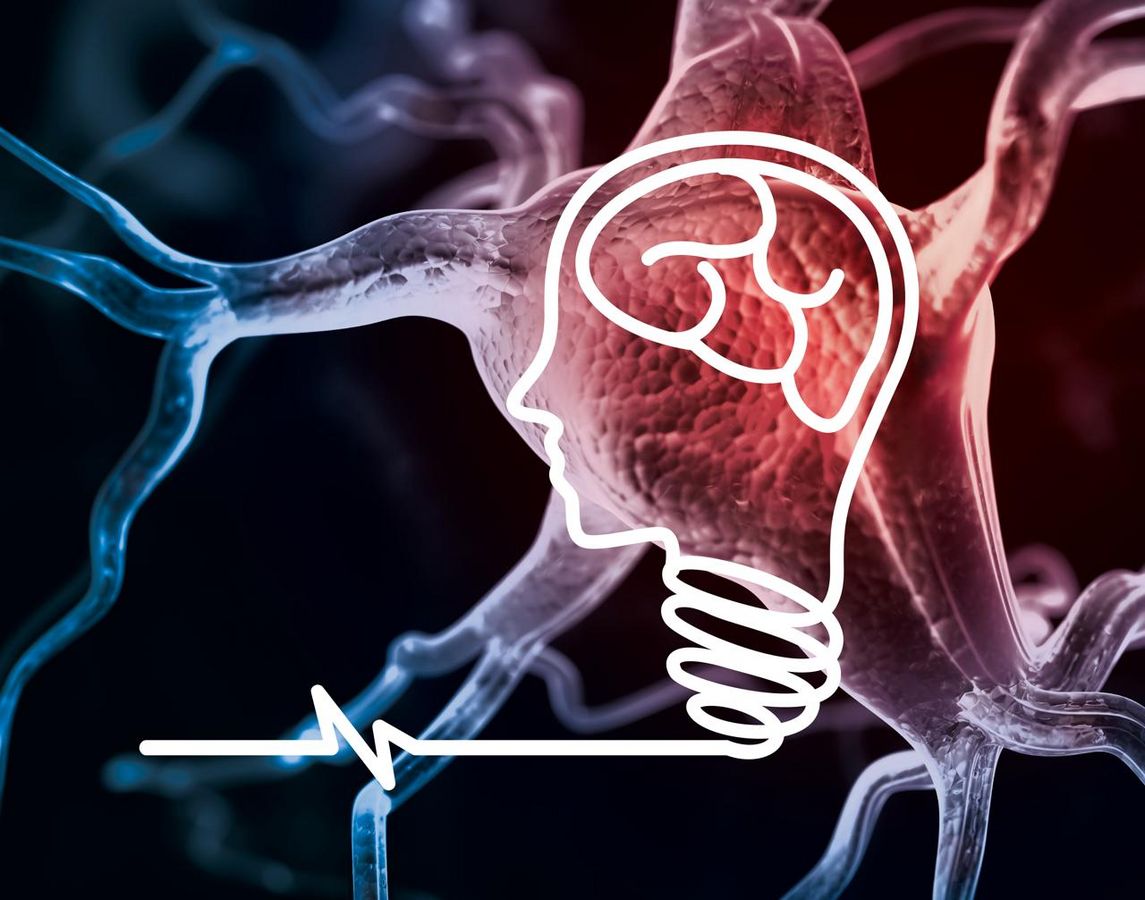The strategic research field comprises four research profile areas that investigate the foundations of life and health in humans, nature and the environment. Scholars from the life sciences, natural sciences, economics, the humanities, social sciences and computer science work together to advance basic and applied research and its transfer into society.
The Impact of Civilisation on Humanity
Modern civilisation can contribute to or even cause functional and organic human diseases. We do not yet fully understand the exact mechanisms behind “modern” diseases associated with civilisation. Investigating them is the central goal of this research profile area.
The participating institutions are from the natural and life sciences as well as the humanities and social sciences. Their joint work has interwoven them into large research alliances.
The research focus is on interactions between inflammation, metabolism and regeneration processes, and their significance for modern, lifestyle-related diseases. While Leipzig University’s particular focus is on investigating the modern epidemic of obesity, the Modern Diseases research profile area also unites a number of cancer research projects.
The researchers develop innovative therapies, individually adapted preventive measures and campaign-based health recommendations. The basis for this is excellent collaborative research in the fields of biomedicine, psychology and sociocultural systems. On the basis of successful externally funded projects in the research profile area, the aim is to establish an international reference centre for integrative obesity research.
Obesity Mechanisms (CRC 1052)
The Obesity Mechanisms Collaborative Research Centre has three main foci in its obesity research: overeating, fat deposition and inflammation, and altered adipokine secretion. The aim is to better understand the mechanisms that lead to extreme obesity. Graduates of the Obesity Mechanisms Integrated Research Training Group can acquire the knowledge gained in obesity research as well as additional practical skills, thus equipping them for successful scientific careers. The close interlinking of biomedical and social science at the Obesity Competence Center makes it also possible to understand modern diseases not only in biomedical terms, but also in terms of social and human sciences.
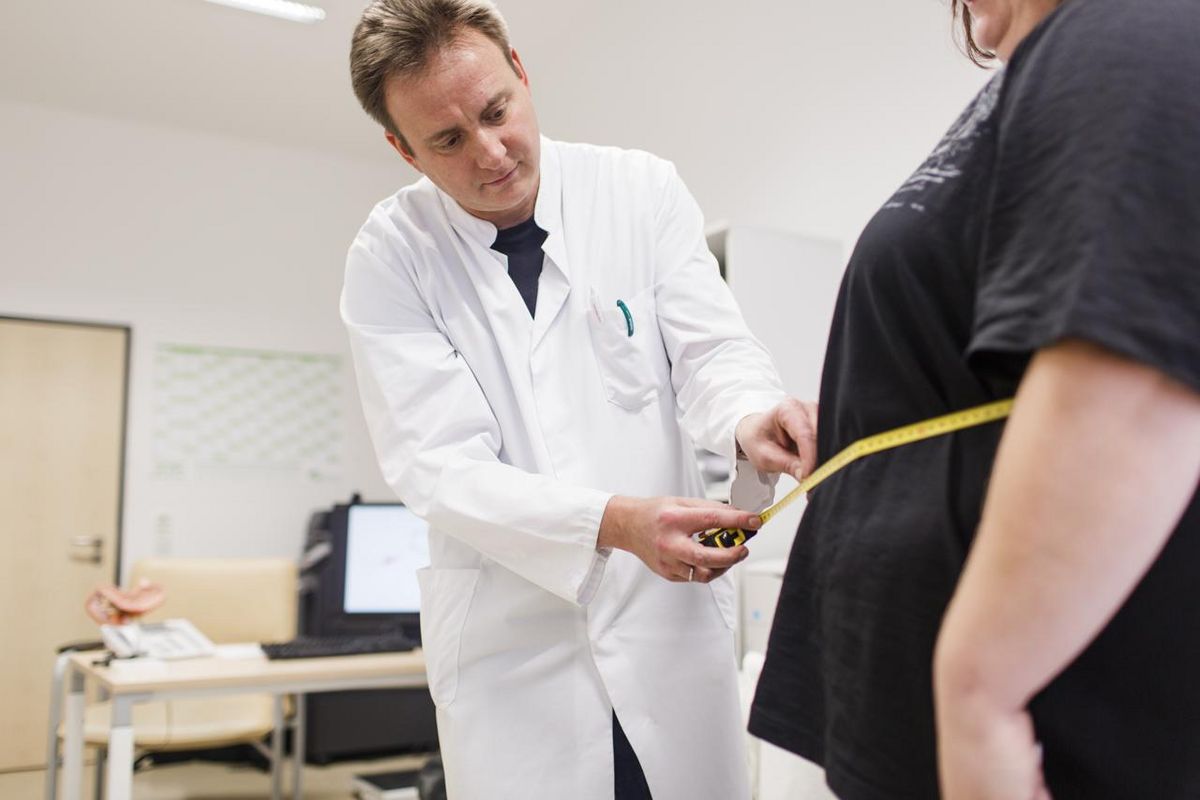
Functional Biomaterials for Controlling Healing Processes in Bone and Skin – from Material Science to Clinical Application (CRC/Transregio 67)
Transregio 67, Functional Biomaterials for Controlling Healing Processes in Bone and Skin – from Material Science to Clinical Application, is researching the development of novel functional biomaterials to improve bone and skin regeneration in an ageing, multimorbid population.
Clinical Trial: A Multi-Centred, Randomized, Controlled Trial Comparing Weight Loss in Endoscopically Implanted Duodenal-Jejunal Bypass Liner Versus Intragastric Balloons Versus a Sham Procedure
The clinical trial comparing weight loss in endoscopically implanted duodenal-jejunal bypass liners versus intragastric balloons versus a sham procedure compares sham endoscopies with the use of intragastric balloons and duodenal-jejunal bypass liners in the treatment of obesity.
FORCE: Imaging the Force of Cancer
Professor Josef Alfons Käs (Peter Debye Institute for Soft Matter Physics)
CULPRIT-SHOCK: Multivessel Versus Culprit Lesion Only Percutaneous Revascularization in Patients with Acute Myocardial Infarction Complicated by Cardiogenic Shock
Professor Joachim Thiery (Institute of Laboratory Medicine, Clinical Chemistry and Molecular Diagnostics)
METACARDIS: Metagenomics in Cardiometabolic Diseases
Professor Michael Stumvoll (Department of Endocrinology and Nephrology)
Federal ministries fund the following projects, which receive funding of 500,000 euros or more.
Integrated Research and Treatment Center (IFB) AdiposityDiseases
Scientific director: Professor Michael Stumvoll (Faculty of Medicine; University Hospital, Department of Endocrinology and Nephrology)
The IFB researches and treats obesity (adiposity) and its accompanying diseases in children, adolescents and adults. It is a joint centre of Leipzig University and the University Hospital Leipzig, and funded by the Federal Ministry of Education and Research (BMBF).
SONO-RAY: Tumor Therapy Combined by MR-Guided Focused Ultrasound and Radiation Therapy
Project director: Professor Andreas Melzer (Faculty of Medicine; University Hospital, Innovation Center for Computer-Assisted Surgery (ICCAS))
The BMBF-funded SONO-RAY project is establishing an interdisciplinary research programme in Leipzig on focused ultrasound. By combining radiotherapy and focused ultrasound, researchers hope to be able to treat tumour diseases more effectively in the future.
nutriCARD: Competence Cluster for Nutrition and Cardiovascular Health
Project director: Professor Peggy Braun (Faculty of Veterinary Medicine, Institute of Food Hygiene)
In the nutriCARD competence cluster, around 40 scientists from various disciplines are researching the mechanisms of nutritional and age-related diseases and in turn developing heart-healthy foods. As part of this holistic project, specially developed consumer awareness courses aim at improving the nutritional knowledge and behaviour of the population in the long term.
Further information:
nutriCard website
BMBF project website
NWG INDRA: A Model of the Intestinal Stem Cell Niche: Development, Regeneration and Ageing
Project director: Dr Jörg Galle (Faculty of Medicine, Interdisciplinary Centre for Bioinformatics)
e:Med CAPSyS: Modelling of Community-Acquired Pneumonia
Project director: Professor Markus Löffler (Faculty of Medicine, Institute for Medical Informatics, Statistics and Epidemiology)
CAPSyS is an interdisciplinary research network that investigates the causes and progression of severe pneumonia.
STOP-NUC: Defined Duration of Nucleoside Analogue Therapy in HBeAg-Negative Patients with Chronic Hepatitis B: A Randomised Trial
Project director: Dr Florian van Bömmel (Faculty of Medicine; University Hospital, Department of Gastroenterology and Rheumatology)
SysMedOs: Integration of Oxidative Stress into Systems Medicine View for Obesity and Obesity-Related Complications
Project director: Dr Maria Fedorova (Faculty of Chemistry and Mineralogy, Institute of Bioanalytical Chemistry)
The BMBF-funded junior research group SysMedOs is investigating the behaviour of differently oxidised versions of lipids and proteins in obesity. The research enables a consideration of metabolically healthy and diseased obesity phenotypes from a systems medicine perspective.
In the field of gastric cancer research, tissue samples and data on treatment and disease progression are being collected from approximately 500 patients at the Leipzig University Cancer Center, in order to obtain reliable, statistically significant results. The sub-project of the SYS-Stomach Consortium is funded by the BMBF.
Two major challenges of our time, the transformation of energy systems and the sustainable handling of biodiversity as a resource, are the focus of the research activities in this profile area.
The research interests lie in developing environmentally friendly catalytic processes, identifying innovative technologies and solution strategies for energy production, as well as the fundamentals of biodiversity conservation. The aim is to link these three areas of sustainability research:
- How can economically efficient energy landscapes be designed to maximise biodiversity and ecosystem services?
- How can the use of biomass as a raw material base be optimised by new catalytic processes?
- How can new catalytic processes optimise the use of biomass as a raw material base?
The spectrum of approaches ranges from laboratory development and prognosis models to major ecological experiments on the landscape scale.
- Centre for Biotechnology and Biomedicine (BBZ)
- Deutsches Biomasseforschungszentrum (DBFZ)
- German Centre for Integrative Biodiversity Research (iDiv) Halle-Jena-Leipzig
- Faculty of Life Sciences
- Faculty of Chemistry and Mineralogy
- Faculty of History, Arts and Oriental Studies
- Faculty of Mathematics and Computer Science
- Faculty of Physics and Earth Sciences
- Faculty of Social Sciences and Philosophy
- Fraunhofer Center for International Management and Knowledge Economy (IMW)
- Helmholtz Centre for Environmental Research (UFZ)
- Faculty of Law
- Leibniz Institute of Surface Engineering (IOM)
- Leibniz Institute for Tropospheric Research (TROPOS)
- Max Planck Institute for Evolutionary Anthropology (MPI EVA)
- Faculty of Economics and Management Science
- Remote Sensing Centre for Earth System Research
The German Research Foundation (DFG) supports a large number of projects at our university in cooperation with other scientific institutions. The following are the most important collaborative projects in the field of Sustainable Systems and Biodiversity:
German Centre for Integrative Biodiversity Research (iDiv) Halle-Jena-Leipzig
In collaboration with the Martin Luther University Halle-Wittenberg (MLU), the Friedrich Schiller University Jena (FSU) and Leipzig’s Helmholtz Centre for Environmental Research (UFZ), our university is currently home to the German Centre for Integrative Biodiversity Research (iDiv) Halle-Jena-Leipzig. Since 2012, researchers from more than 30 nations have been investigating the largely damaging influence of human activity on fauna and flora, developing a scientific basis for the sustainable stewardship of our planet’s biodiversity.
Arctic Amplification (CRC/Transregio 172)
With the CRC/Transregio 172, we are conducting systematic large-scale research in the field of Arctic climate change (AC)³ for the first time in Germany. Applying a variety of different methods, the aim of the wide-ranging research alliance with the University of Bremen, the University of Cologne, the Alfred Wegener Institute and the Leibniz Institute for Tropospheric Research is to observe climatic changes in the Arctic over long periods of time. On the basis of observations of measuring instruments on satellites, aircraft, airborne balloon platforms and research vessels, but also the results of selected ground-based monitoring stations, the researchers are improving the reliability of models for predicting the warming already recorded in the Arctic.

TreeDi – Tree Diversity Interactions (RTG 2324)
The International Research Training Group “TreeDi – Tree Diversity Interactions: The Role of Tree-Tree Interactions in Local Neighbourhoods in Chinese Subtropical Forests” led by the German Centre for Integrative Biodiversity Research (iDiv) Halle-Jena-Leipzig together with the University of Chinese Academy of Sciences (UCAS) in China is investigating how tree-tree interactions in local neighbourhoods translate into the observed positive tree species richness effects on key ecosystem functions at the community level. The international qualification programme provides for intensive Chinese-German cultural exchange during a six-month research stay in the partner country. There is also a joint doctoral candidate advisory committee with Chinese and German project leaders and close cooperation with leading figures of biodiversity research.
Biodiversity and Ecosystem Functioning (FOR 1451)
Based on the results of a long-term biodiversity experiment in Jena, the project looks at mechanisms which determine the influence of plant diversity on ecosystem processes. Sixty plant species common to Central European Arrhenatherum elatius grasslands have been selected. Professor Nico Eisenhauer from the iDiv research centre is the spokesperson for the Research Unit.
Atmospheric and Earth System Research with the “High Altitude and Long Range Research Aircraft” (HALO) (Infrastructure SPP 1294)
The HALO Infrastructure Priority Programme is coordinated by Professor Manfred Wendisch at the Leipzig Institute for Meteorology. HALO is a research aircraft that supports the project partners in their investigations of atmospheric processes, earth observation and climate research.
SPP 2361: On the Way to the Fluvial Anthroposphere
Priority Program 2361, "On the Way to the Fluvial Anthroposphere," explores how human societies and pre-industrial floodplains of Central Europe have interacted. Whether and since when humans have influenced floodplain development is the central question of the priority program. Leipzig University, the University of Tübingen and the TU Darmstadt have jointly developed the framework program. Christoph Zielhofer from the Institute of Geography at Leipzig University has the lead in the first phase.
The European Research Council (ERC) and European Social Fund (ESF) are currently funding two projects by Leipzig-based scientists working in this research profile area:
ERC Starting Grant: „ECOWORM – Ecosystem Responses to Exotic Earthworm Invasion in Northern North American Forests”
Director: Professor Nico Eisenhauer (iDiv)
ESF project: S2DES – Smart Sensor-Based Ecosystem Services
Director: Professor Rainer Alt (Information Systems Institute)
Ministries such as the Federal Ministry of Education and Research (BMBF) support a number of projects at our university. The following are significant projects which receive funding in excess of 500,000 euros.
BIOPASS: Image-, Ontology- and Process-Based Assistance for Minimally Invasive Endoscopic Surgery
Sub-project: Ontology-Based Information Integration and Automatic User Adaptation
Project director: Professor Thomas Neumuth (Faculty of Medicine, University Hospital; Innovation Center for Computer-Assisted Surgery (ICCAS))
ENEFF: Gemeinsam auf dem Weg in die energieeffiziente urbane Moderne
Project director: Professor Thomas Bruckner (Faculty of Economics and Management Science, Institute for Infrastructure and Resource Management)
InnoProfile-Transfer Junior Research Group Endowed Chair: Development of a Logistics Service Engineering and Management Approach for Value-Added Logistics (LSEM)
Project director: Dr Ludwig André (Faculty of Economics and Management Science, Information Systems Institute)
WindNODE: The Showcase for Intelligent Energy from Northeastern Germany. Analysis, Design and Simulation of Market-Based Instruments for the Integration of Network-Appropriate Flexibilities into Intelligent Energy Supply Systems with a High Share of Renewable Energies.
Project director: Professor Thomas Bruckner (Faculty of Economics and Management Science, Institute for Infrastructure and Resource Management)
The Volkswagen Foundation is supporting Dr Carsten Meyer, a Leipzig University researcher based at iDiv, with one of its ‘Freigeist’ Fellowships.
‘Freigeist’ Fellowship: Modelling the Socioeconomic Forces behind 21st-Century Biodiversity Loss: A Macroscopic Approach to Turn Complexity into Opportunities for Action
The International Max Planck Research School “The Leipzig School of Human Origins” (IMPRS LSHO) is a unique postgraduate programme that combines different disciplines to study the evolutionary history and origins of humans and other primates. The Leipzig School of Human Origins is a collaboration between Leipzig University and the Max Planck Institute for Evolutionary Anthropology.
Professor Thomas Bruckner
Institute for Infrastructure and Resource Management
Grimmaische Straße 12
04109 Leipzig
Phone: +49 341 97-33516
Fax: +49 341 97-33538
Send email
Professor Roger Gläser
Institute of Chemical Technology
Linnéstraße 3
04103 Leipzig
Phone: +49 341 97-36300
Fax: +49 341 97-36349
Professor Christian Wirth
Institute of Biology
Johannisallee 21 — 23
04103 Leipzig
Phone: +49 341 97-38591
Fax: +49 341 97-38549
The research profile area of Molecular and Cellular Communication in Therapy and Diagnostics is devoted to investigating complex cell processes.
Communication between molecules, and interactions between cells and between molecules and cells, are essential foundations for the biochemical exchange of information. The research profile area aims to identify, characterise and understand these interactions. The researchers approach this from different angles: why does a cell change? How does it react to certain external influences? The research considers both human and animal cells. For example, the scientists are investigating clinical pictures of cancer and obesity as well as wound healing. Their research results should contribute to the development of new drugs and therapies.
- Centre for Biotechnology and Biomedicine (BBZ)
- Faculty of Life Sciences
- Faculty of Chemistry and Mineralogy
- Faculty of Mathematics and Computer Science
- Faculty of Physics and Earth Sciences
- Helmholtz Zentrum Dresden-Rossendorf (HZDR), Research Site Leipzig
- Helmholtz Centre for Environmental Research (UFZ)
- Faculty of Medicine
- Faculty of Veterinary Medicine
Structural Dynamics of GPCR Activation and Signal Transduction (CRC 1423)
Cells communicate with each other and their environment via receptors. G protein-coupled receptors (GPCRs) are the largest group of membrane receptors and found in almost all living organisms. In CRC 1423, “Structural Dynamics of GPCR Activation and Signal Transduction”, Leipzig University researchers from the life sciences, medicine, pharmacy and bioinformatics are investigating interactions between peptide receptors and adhesion receptors – GPCRs that have so far been the subject of little research. To this end, they are collaborating with partners at the Charité university hospital in Berlin, the Helmholtz Association’s Max Delbrück Center for Molecular Medicine, and the Martin Luther University Halle-Wittenberg. One of the CRC’s goals is to clarify the dynamic structural states of these GPCRs in order to understand their functions. This could lead to the development of novel therapeutics for this class of GPCRs. Doctoral candidates at this CRC are trained in its integrated Research Training Group.
Obesity Mechanisms (CRC 1052)
The Obesity Mechanisms Collaborative Research Centre has been examining three main research foci since 2013: overeating, fat deposition and inflammation, and altered adipokine secretion. In cooperation with three partner institutions – the Max Planck Institute for Human Cognitive and Brain Sciences, the Helmholtz Centre for Environmental Research (UFZ) and Ben-Gurion University of the Negev (Israel) – the researchers aim to enhance our understanding of obesity as a multifactorial and socially relevant disease.
Functional Biomaterials for Controlling Healing Processes in Bone and Skin – from Material Science to Clinical Application (CRC/Transregio 67)
In light of demographic developments in Germany and other industrialised nations, a drastic rise in the number of patients with bone defects and chronic wounds requires the development of novel functional biomaterials to improve bone and skin regeneration. To this end, CRC/Transregio 67 Functional Biomaterials is pursuing the goal of developing and testing such materials on the basis of artificial extracellular matrices. A joint effort with the TU Dresden, the initiative includes projects that deal predominantly with material science and chemistry (project area A), but also projects that focus on cell biology and clinical practice (project area B). The “T – Transfer” project area aims to promote development towards clinical translation. The Integrated Research Training Group “Matrix Engineering” forms part of the Transregio. With a structured postgraduate qualification programme, it offers the doctoral candidates advanced training modules to prepare them for their future work in research, and also acts as a bridge between the content and methodology of the individual sub-projects.
Elucidation of Adhesion-GPCR Signalling (FOR 2149)
Adhesion-type G protein-coupled receptors form a large class of seven-transmembrane-spanning (7TM) receptors. In the past, these receptors have been shown to be essential components of countless physiological functions, and a veritable treasure trove for modern pharmacological intervention. Unlike other 7TM receptors, we know comparatively little about adhesion GPCR as a receptor class. The work conducted by the “Elucidation of Adhesion-GPCR Signalling” Research Unit focuses on unresolved fundamental questions about the biology of adhesion GPCR, with special attention paid to the physiological and pharmacological properties of their signalling behaviour.
Jens Meiler was awarded a Humboldt Professorship in 2019. A pharmaceutical chemist and bioinformatics researcher, he conducts research where biology, physics, chemistry and computer science meet. At the new Institute for Innovation in Rational Drug Design, Meiler will carefully combine computer-aided processes with experimental methods in order to develop new pharmaceuticals. This will directly support the research profile area of Molecular and Cellular Communication in Therapy and Diagnostics – with whose scientists he already cooperated extensively before the award. Joint projects will further expand this cooperation in the future.
- A Multi-Center Randomized, Placebo-Controlled Trial of Mirabegron, a New Beta-3 Adrenergic Receptor Agonist on Left Ventricular Mass and Diastolic Function in Patients with Structural Heart Disease,
- HYMADE: Hybrid Drug Delivery Systems upon Mesoporous Materials, Self Assembled Therapeutics and Virosomes
SysMedOs: Integration of Oxidative Stress into Systems Medicine View for Obesity and Obesity-Related Complications
Project director: Dr Maria Fedorova (Faculty of Chemistry and Mineralogy, Institute of Bioanalytical Chemistry)
Learn more
Professor Annette Beck-Sickinger
Institute of Biochemistry
Brüderstraße 34
04103 Leipzig
Phone: +49 341 97-36901
Send email
Professor Torsten Schöneberg
Institute of Biochemistry
Johannisallee 30
04103 Leipzig
Phone: +49 341 97-22150
Send email
This research profile area investigates the basics of nervous system function, including movement control, speech, attention, perception and memory, and their variability.
The researchers investigate specific aspects of human behaviour and the human brain, early childhood and evolutionary development as well as neurological and psychiatric diseases such as depression, dementia, stroke, and attention and behavioural disorders. How is the release of neurotransmitters controlled? How does the brain recover from a stroke? What do hibernation and Alzheimer’s disease have in common? The Brain Dynamics research profile area concentrates research into the brain, its diseases and new treatment options.
- Faculty of Life Sciences
- Faculty of Physics and Earth Sciences
- Max Planck Institute for Evolutionary Anthropology (MPI EVA)
- Max Planck Institute for Human Cognitive and Brain Sciences (MPI CBS)
- Max Planck Institute for Mathematics in the Sciences (MPI MiS)
- Faculty of Medicine
- Faculty of Sport Science
- Saxon Incubator for Clinical Translation
- Faculty of Veterinary Medicine
FOR 3004: Synaptic pathology in autoimmune encephalitis (SYNABS)
The initiative for a DFG Research Unit (RU) “Synaptic pathology in autoimmune encephalitis” (SYNABS) brings together clinician scientists in the field of antibody-mediated immunological disorders with basic scientists in the field of neurophysiology, molecular neurobiology, and neuroimmunology collectively investigating autoantibody-mediated pathology in the CNS. The aim of SYNABS is to elucidate the pathophysiology of autoimmune encephalitis in which autoantibodies are directed at synaptic targets. The research group is coordinated at the Friedrich Schiller University Jena. Professor Stefan Hallermann from the Carl Ludwig Institute for Physiology is co-speaker and involved in two sub-projects.
Obesity Mechanisms (CRC 1052)
The Obesity Mechanisms Collaborative Research Centre has been examining three main research foci since 2013: overeating, fat deposition and inflammation, and altered adipokine secretion. In cooperation with three partner institutions – the Max Planck Institute for Human Cognitive and Brain Sciences, the Helmholtz Centre for Environmental Research (UFZ) and Ben-Gurion University of the Negev (Israel) – the researchers aim to enhance our understanding of obesity as a multifactorial and socially relevant disease.
ERC Consolidator Grant: „PreSynPlast - Molecular mechanisms of presynaptic plasticity“ (2020 – 2025)
Awardee: Prof. Dr. Stefan Hallermann
ERC Starting Grant: "AxoMyoGlia – Spatio-functional cellular interplay in peripheral nerve diseases" (2021 – 2025)
Awardee: Prof. Dr. Med. Ruth Stassart
International Max Planck Research School on “Neuroscience of Communication: Function, Structure, and Plasticity” (IMPRS NeuroCom)
Learn more
Professor Stefan Hallermann
Carl Ludwig Institute for Physiology
Faculty of Medicine
Leipzig University
Liebigstraße 27
04103 Leipzig
Phone: +49 341 97-15501
Fax: +49 341 97-15509
Professor Marc Schönwiesner
Institute of Biology
Talstraße 33
04103 Leipzig
Phone: +49 341 97-36723
Fax: +49 341 97-36848
































































